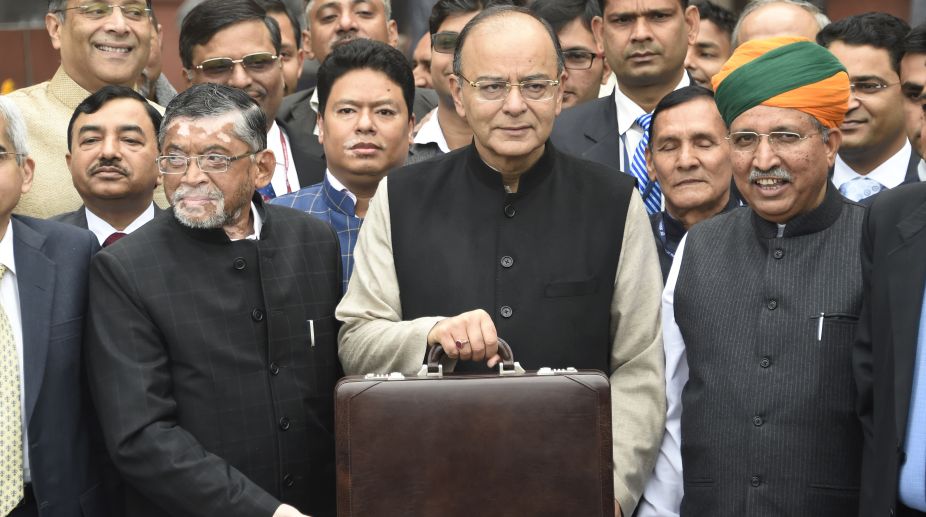Chhattisgarh BJP Govt set to investigate former Congress’ cow dung procurement
BJP lawmakers and ministers launched a scathing onslaught on the Congress, leveling accusations of corruption against them during their tenure.

(Photo: AFP)
Parliament’s Budget Session which ended on 12 April was historic for several reasons, the most notable being that it began on 31 January, a month earlier than the Budget Session's traditional date of 28 February, and concluded all its financial business by 31 March.
The merger of the Railway Budget with the General Budget was another historic feature of the Session, which ended the tradition of the Railway Minister’s separate speech on the rail budget. The two-phase session, which coincided with Assembly elections in five States, gave a go-ahead to four follow-up Bills to the Goods and Services Tax (GST) Act to allow the Centre and States take steps for implementation of a uniform nationwide indirect tax system.
The Budget Session which happened to be the first Budget exercise of the Central Government after another historic event of last November’s demonetisation, would be memorable for a few more reasons.
Advertisement
It was perhaps a rare session where the Motion of Thanks to the President’s address to Parliament was adopted in the Rajya Sabha in the absence of almost the entire Opposition. The development was triggered by the unique occurrence of a point-blank attack on a former Prime Minister by a sitting Prime Minister, while delivering his reply to the Motion of Thanks discussion.
In a packed House of Elders on 8 February, PM Narendra Modi referred to former PM Manmohan Singh’s stark critique on demonetisation in the previous Winter Session, and told him, sitting across on the front Opposition bench, that “One should learn from him how to take bath in a bathroom with a raincoat on.”
Modi said Singh had been associated with the nation’s financial decision-making for nearly 35 of its 70 years of Independence. In spite of a large number of scams during his tenure, it was strange how he had managed to keep his image intact.
Modi’s attack was in response to Singh’s speech on 24 November last year, when the former PM, in the presence of Mr Modi, said there was “monumental mismanagement” in implementation of demonetisation, and the way it was carried out, it can be called a case of “organised loot and legalised plunder.”
The Finance Bill, passed by the Lok Sabha on 22 March, was returned by the Rajya Sabha on 29 March but with five recommendatory amendments. The amendments were rejected by the Lok Sabha the very next day, and the Finance Bill received the President’s assent on 31 March.
Though resigned to the fact that the Rajya Sabha had not much say on Money Bills, and even if the Upper House did not approve them in time, they would be treated as returned in 14 days, the Elders charged the Finance Bill contained amendments to several legislations which were not strictly Money Bills.
Seeking a virtual “demonetisation” of various Bills, the Elders often said the Government was misusing the Money Bill “route” to deny them their say.
Before the Session ended, the Congress extended a rare gesture to the government on the advice of Manmohan Singh by not moving its notified amendments on the four GST Bills, and let them be passed without difficulty in the Opposition-majority Rajya Sabha. Jairam Ramesh, who had moved some of the Congress amendments, said Singh had advised him not to move the amendments as it could disturb the “fine consensus” built on the Bills in the GST Council.
Advertisement